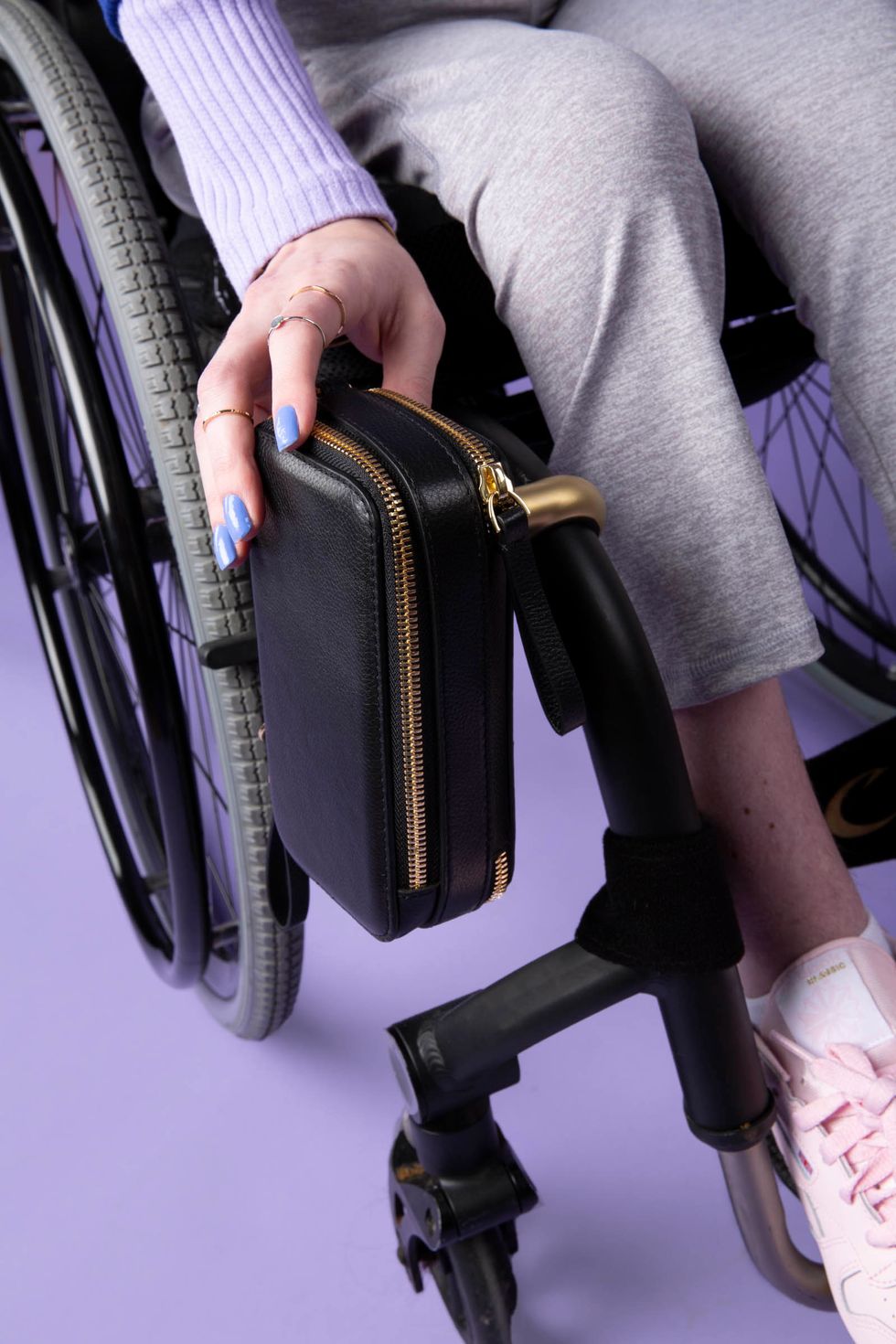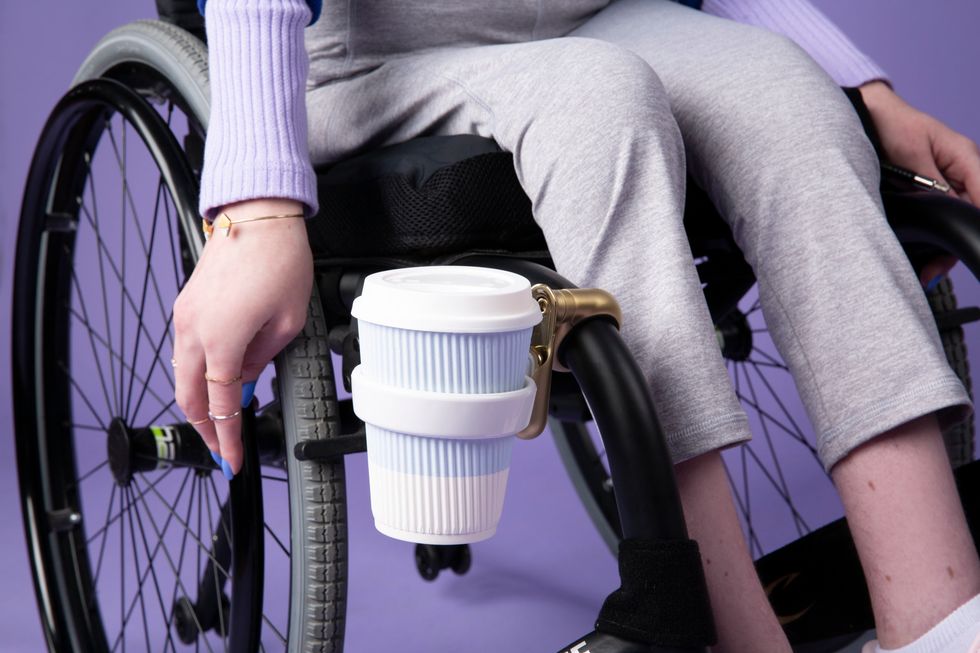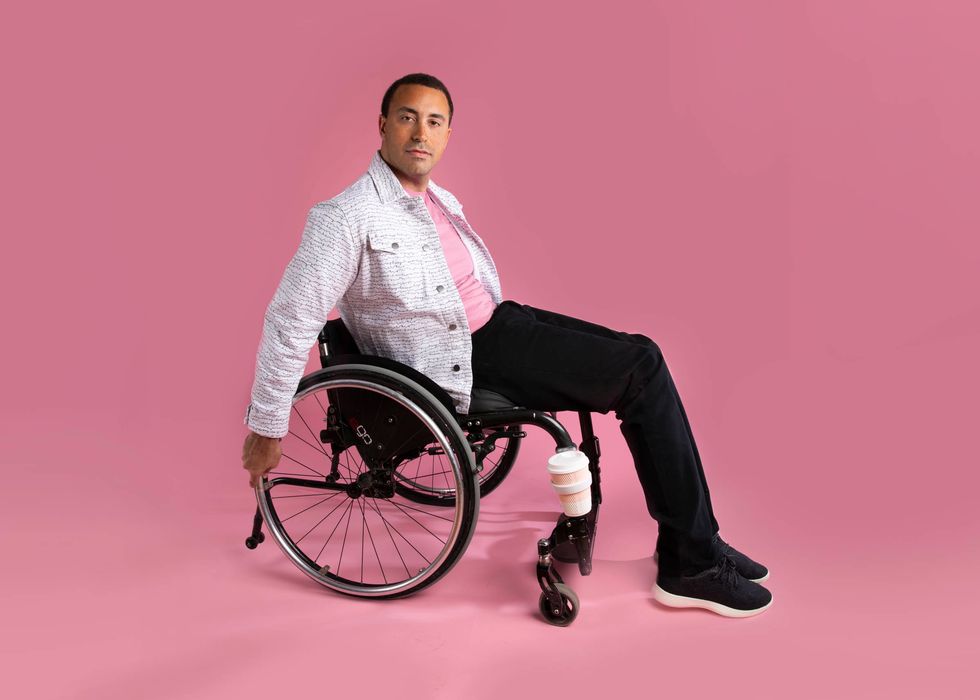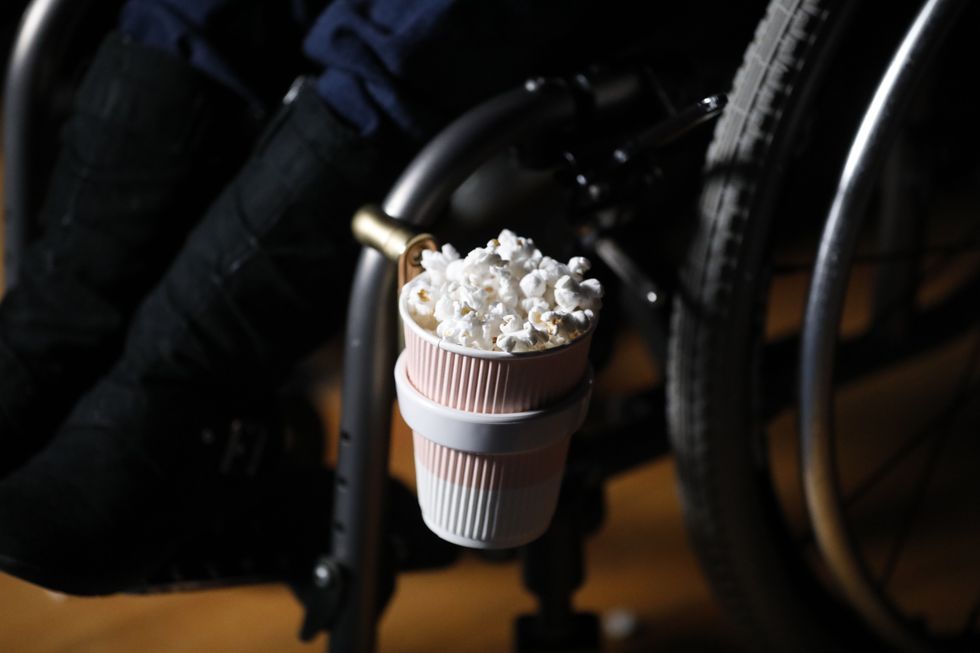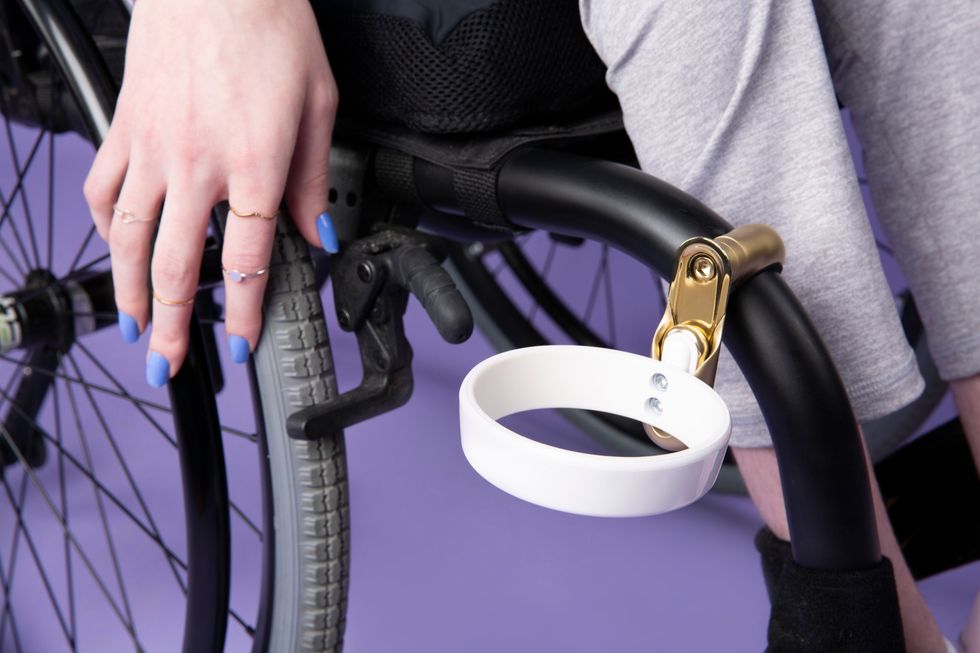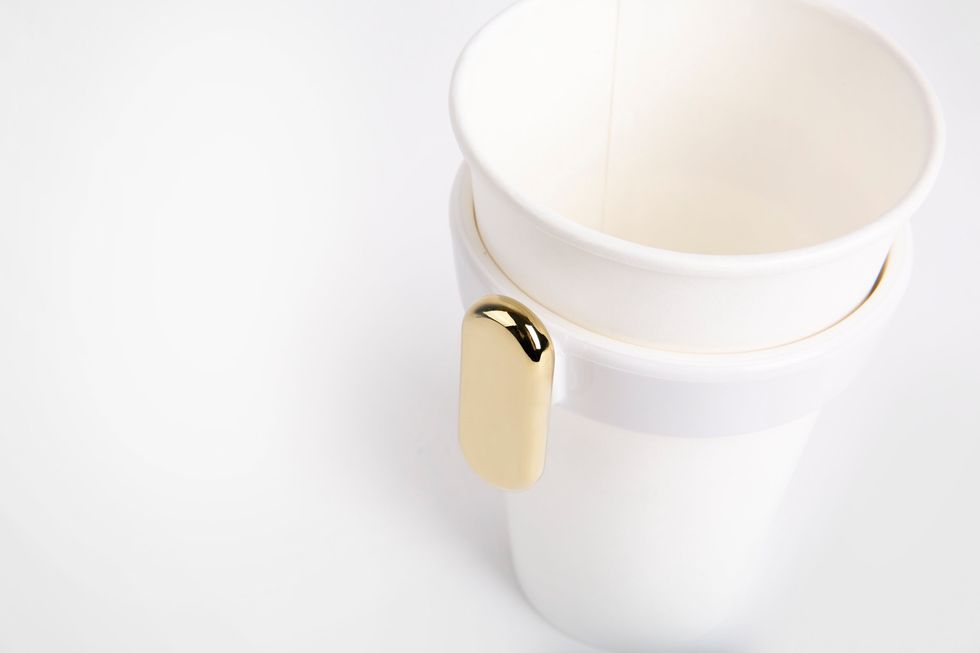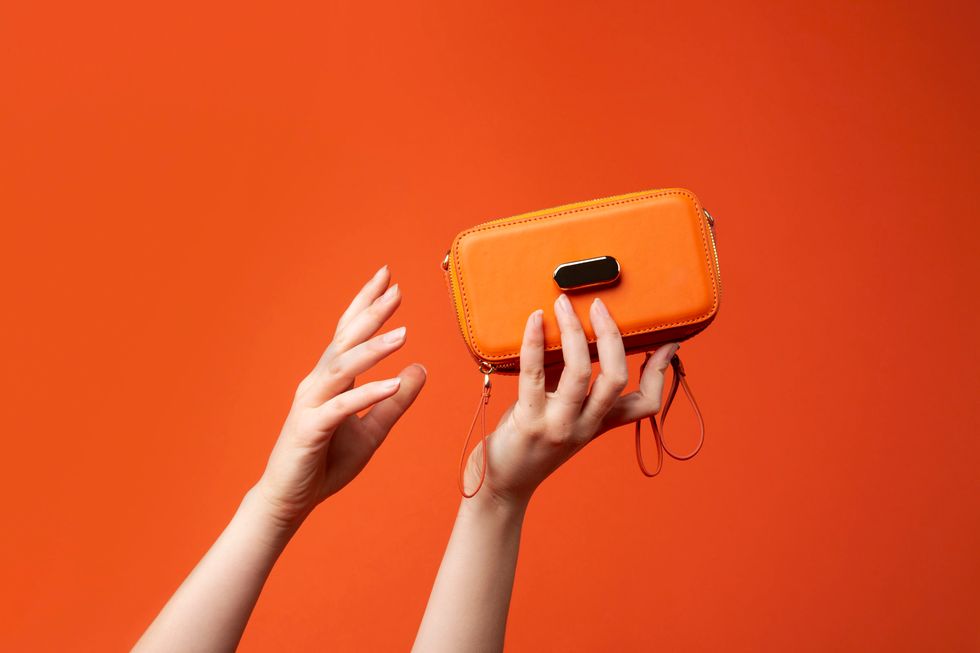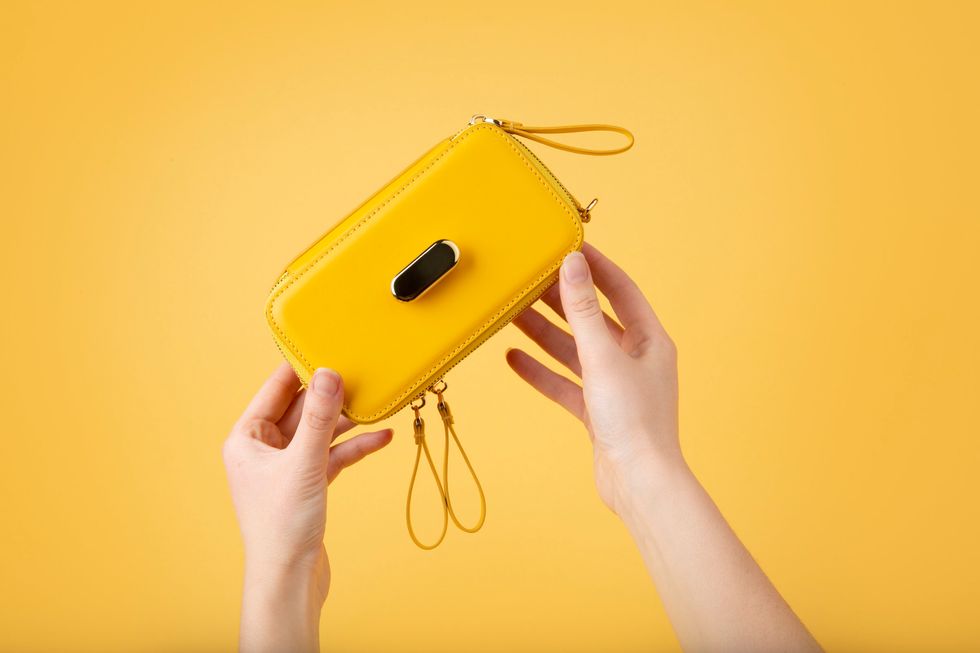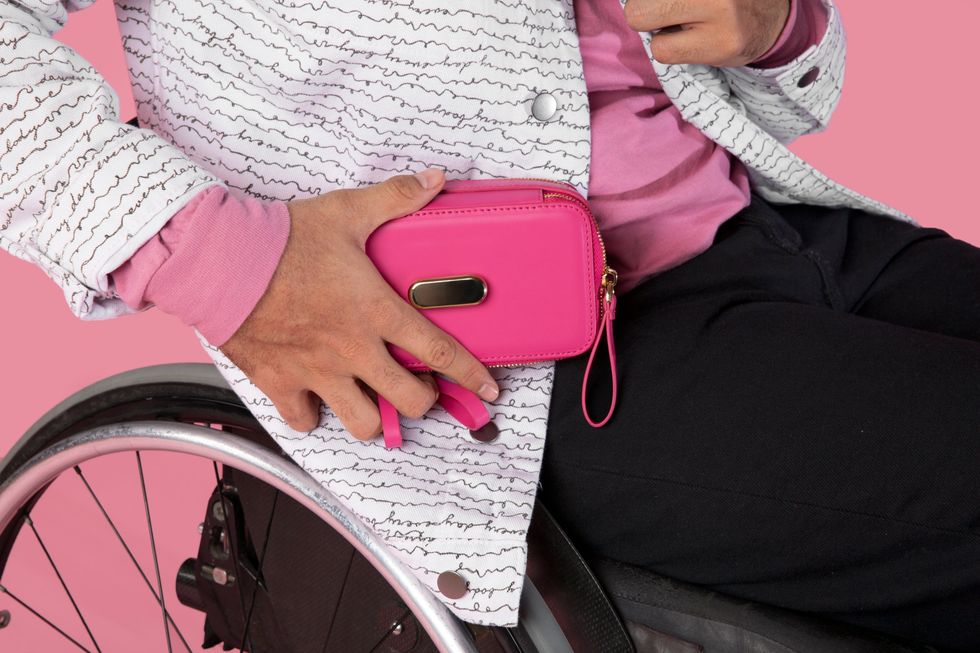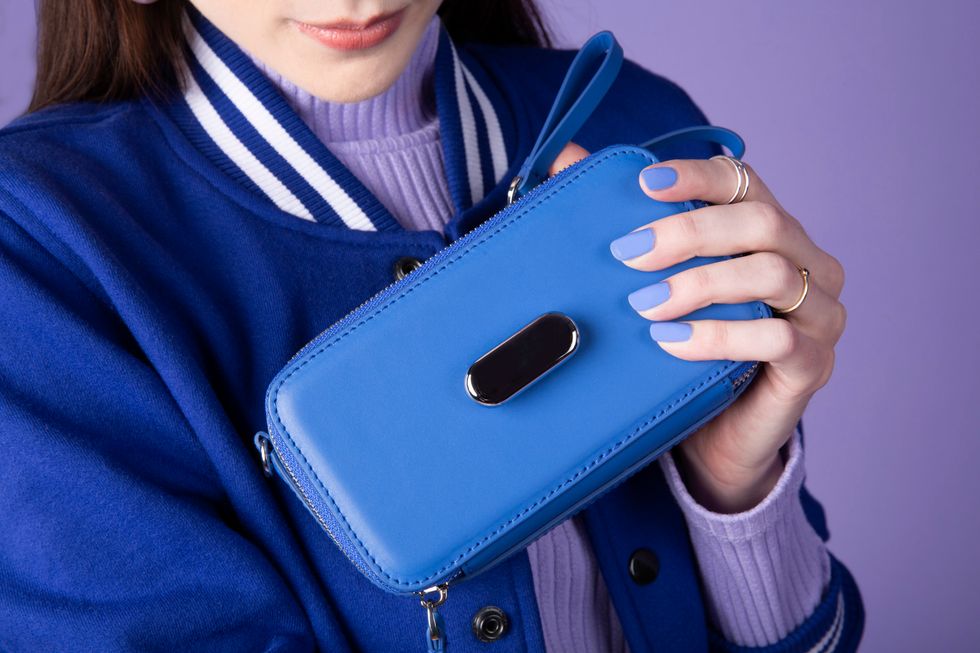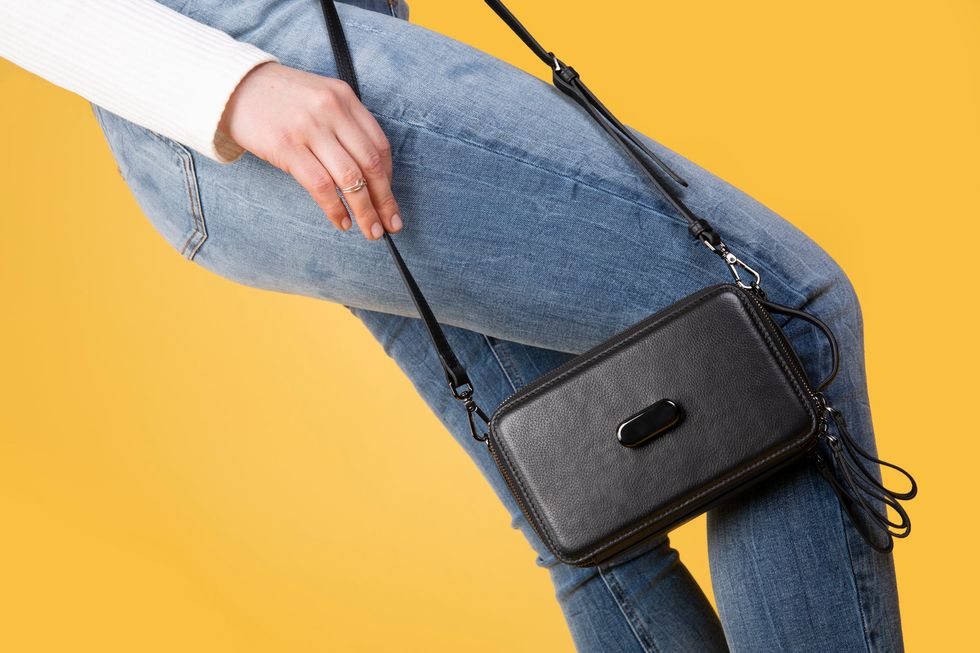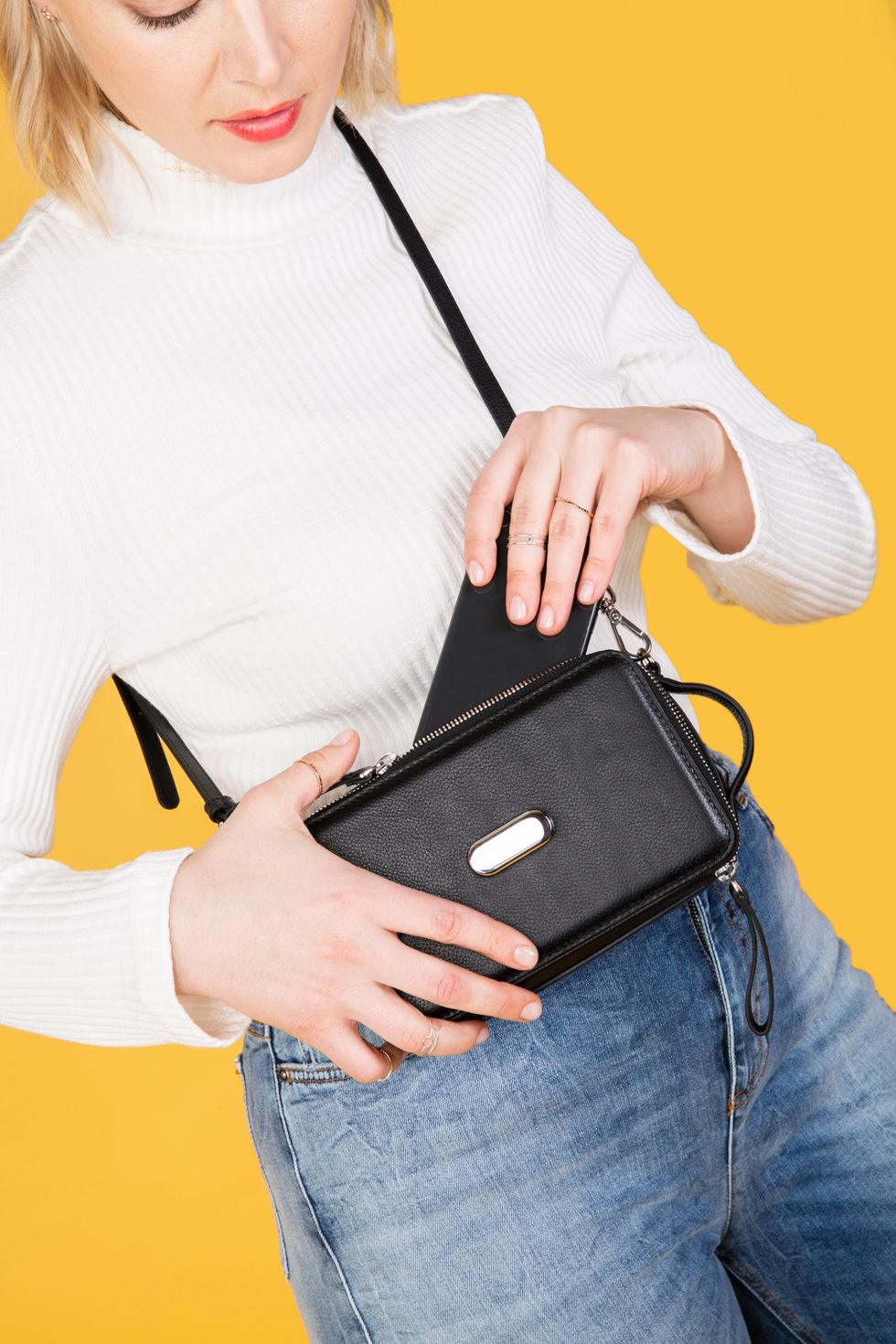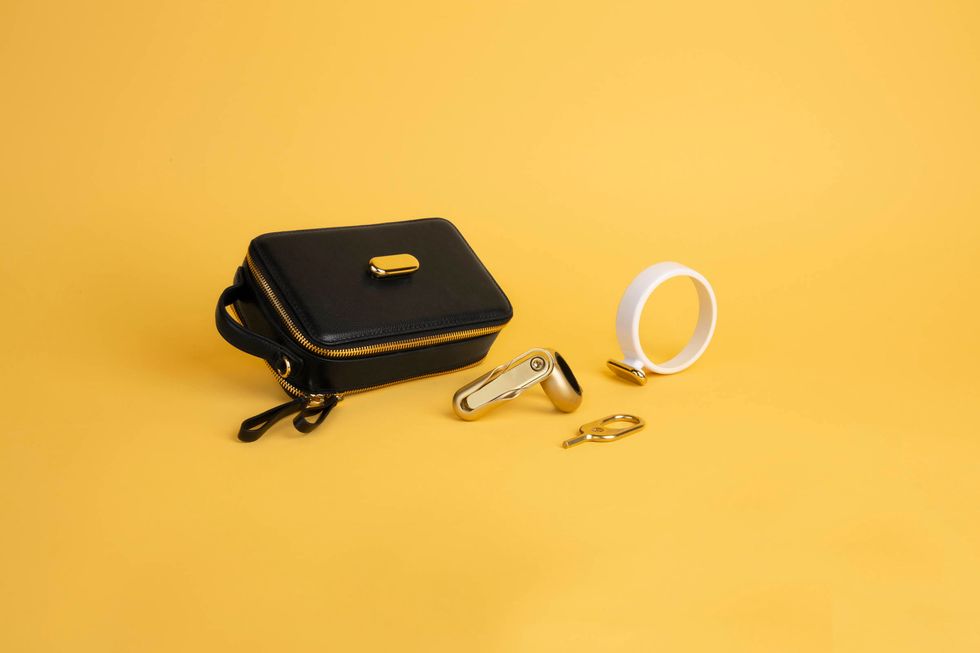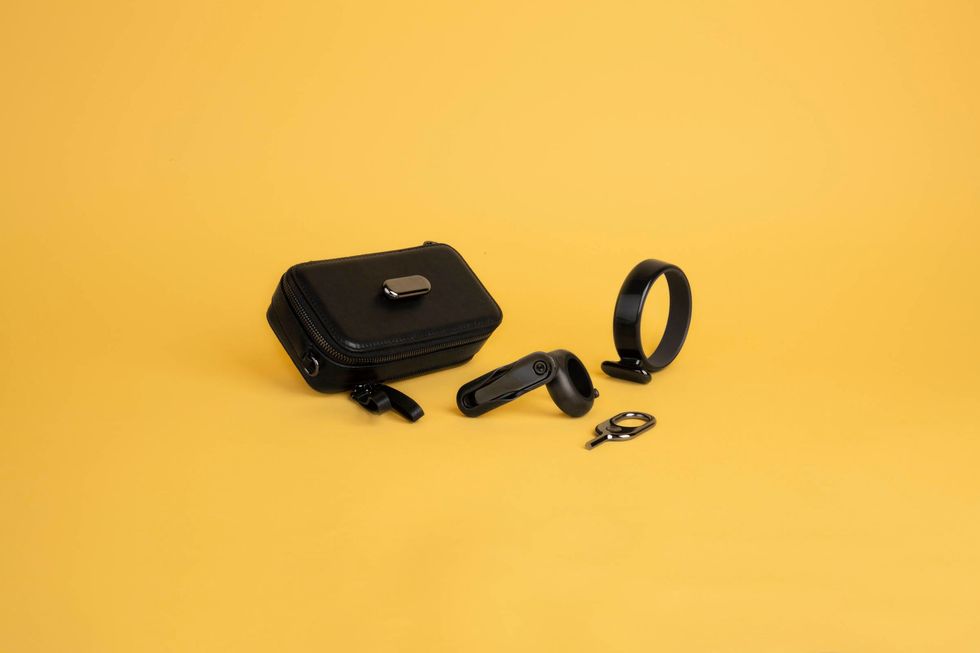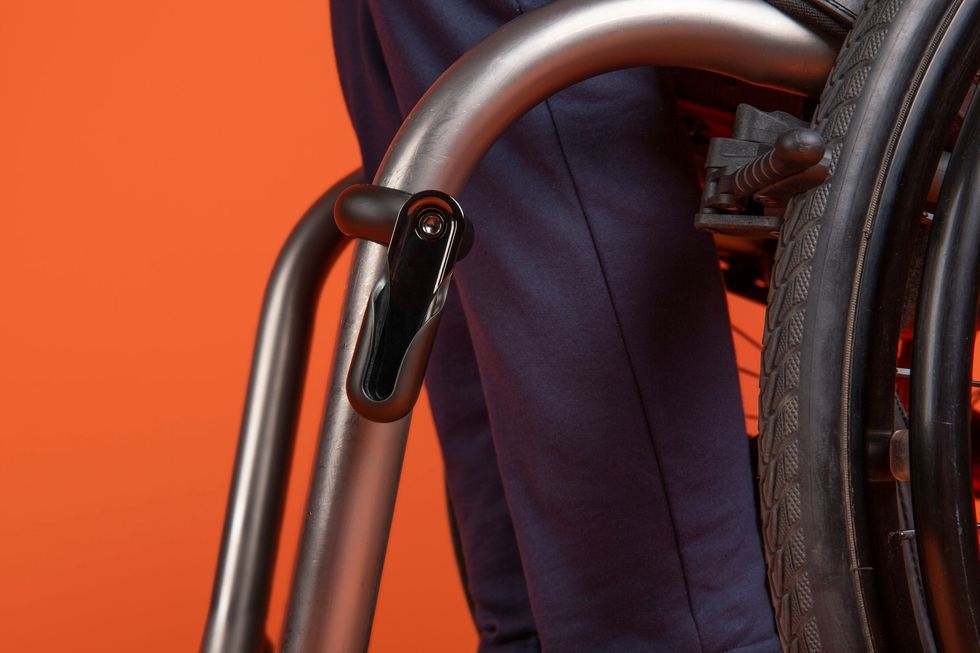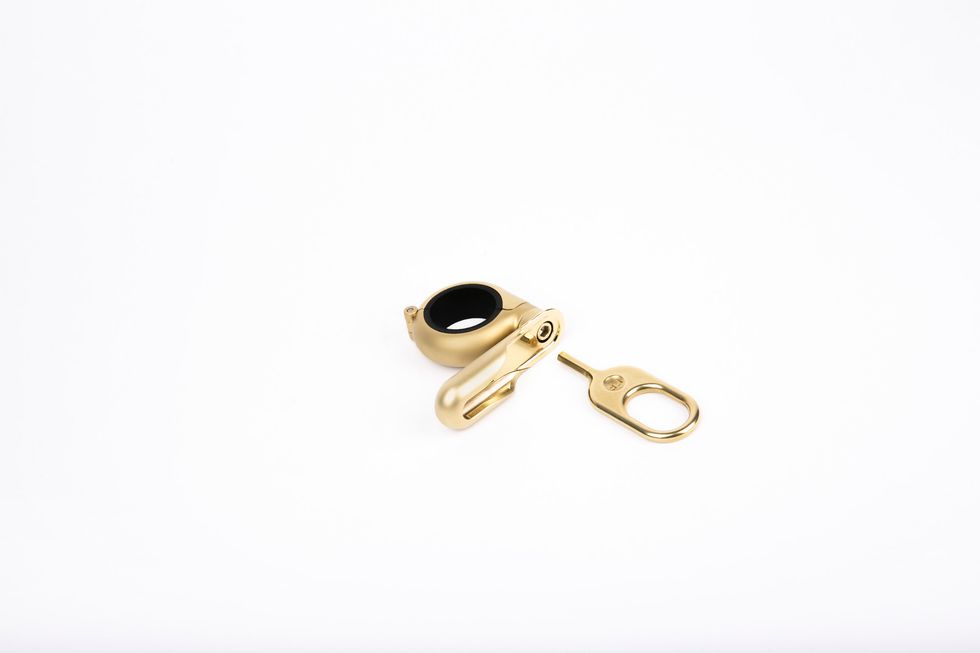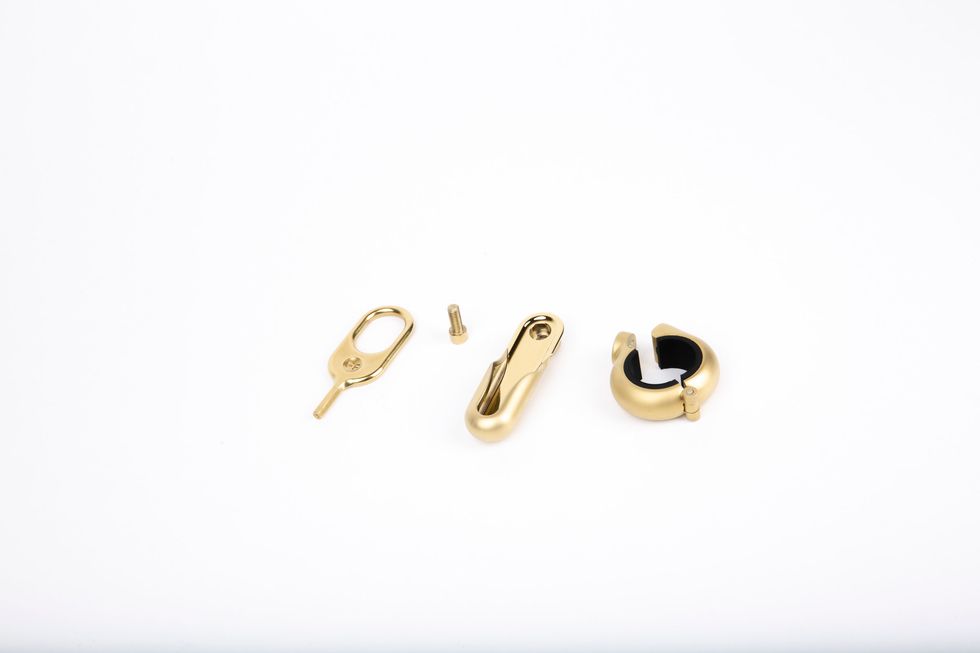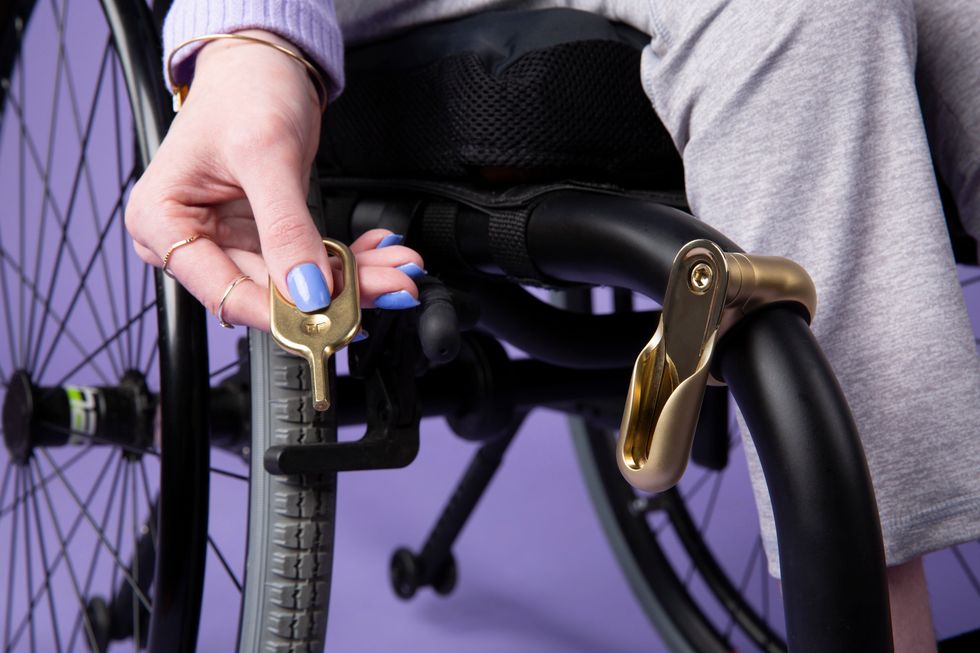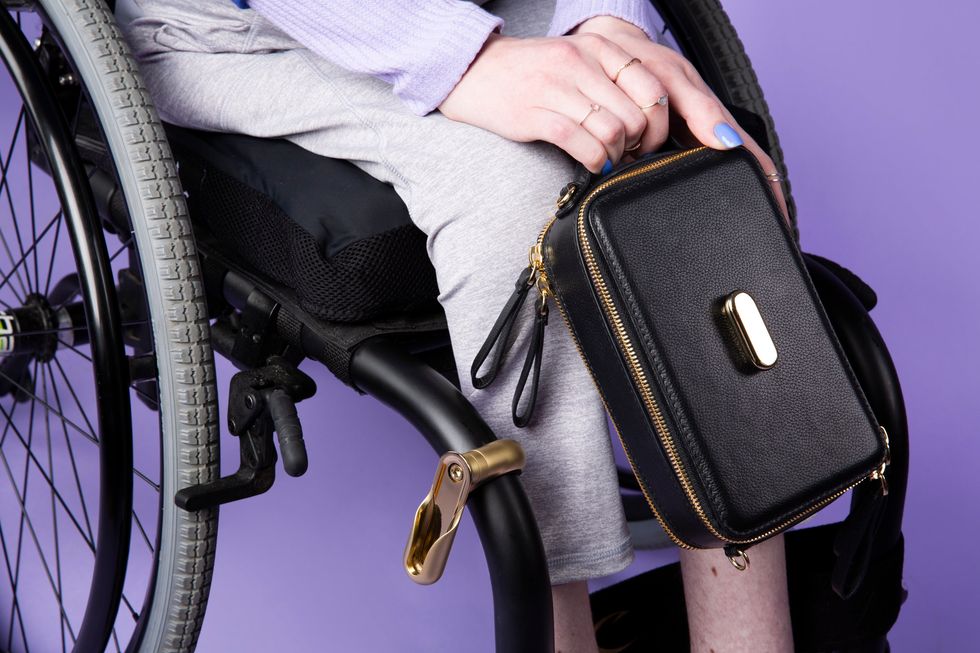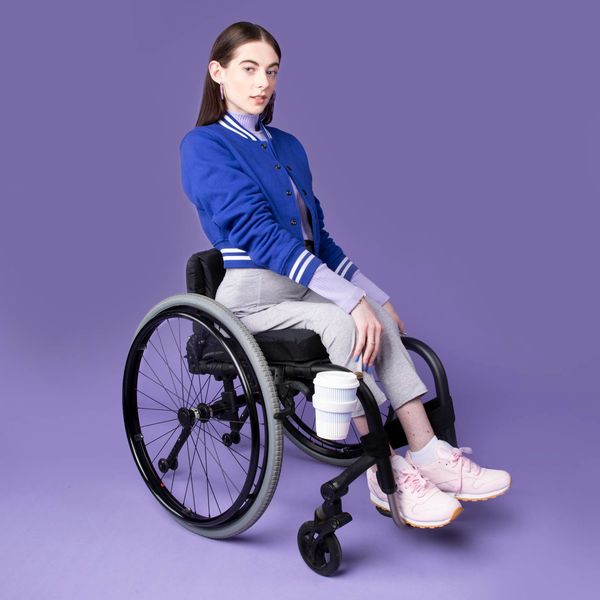
The Designer Making Chic, Wheelchair-Attachable Accessories
Jul 31, 2019
While fashion has begun reckoning with its exclusion based on size, it's still an incredibly unfriendly world for more than 40 million disabled consumers in America.
Adaptive products are rarely designed with style in mind, and very few disabled models are visible on runways, red carpets or in ad campaigns. This is beginning to change, too. Selma Blair got the world talking about living and dressing with MS, walking Oscars red carpets with a diamond-crusted cane. Beauty brands, influencers and designers, like Grace Beauty, Aerie and Tommy Hilfiger have begun producing adaptive products (like mascara wands with increased support grips or pants with magnetic closures) and inclusive campaigns. Models like PAPER cover star Aaron Philip, who recently made her runway debut for Willie Norris, and Jillian Mercado are changing the conversation entirely.
Lucy Jones is a part of that change. The 27-year-old Forbes "30 Under 30" alum graduated from Parsons' fashion design program in 2015, and has been designing exclusively for the disabled community ever since. The year she graduated, she won the Parsons "Womenswear Designer of the Year" award for her "Seated Design" collection of modular products wheelchair users, including clothes with extra fabric on kneecaps and elbows, zippers that run the length of the arm, and snaps and magnet closings.
Since then, she's grown into one of the buzziest, young progressive designers on disability and sustainability. Jones was commissioned to prototype a pair of "Seated Pantyhose" for MoMA's second fashion exhibition entitled "Items: Is Fashion Modern?" as well as pieces for the exhibit "Fashion After Fashion." Later, she helped design a "take-back" program for damaged post-consumer garments for Eileen Fisher as a part of their CFDA residency.
This week, Jones launchd her first brand of her own, FFORA: a fashion and lifestyle line dedicated to design for people with disabilities.
"FFORA's primary goal and mission is to design a world that's accessible to all" she explains. "For too long, the disability community has had to re-invent or design their own solutions for everyday products that most people take for granted. Everyone deserves to see themselves reflected in the products that they use."
She's kicking of FFORA with the essentials, to help make daily life for wheelchair users easy and chic. She's released a multi-use wheelchair-attachable dock, that can clip onto her versatile leather bag (offered in two sizes and five colors) and a cupholder.
"I started doing this work after speaking with my cousin, who has hemiplegic cerebral palsy, which means he has limited mobility along one side of his body, about his daily routine," Jones explains. "I quickly realized that there are a number of things that are difficult for him, but some felt like unnecessarily difficulties due to the bad design of certain products. Our conversations completely opened my eyes, as he challenged me to consider the needs and wants of people who have disabilities during my design process. However, one of the major asks from the disability community has been to make products that are not only functional and easy-to-use, but desirable and stylish as well. From there, I set out to create FFORA."
The heart of the collection is her attachment system, which is compatible with 21 different wheelchair brands (adding up to over 170 models of wheelchairs around the world) and can host any number of products in the future. Careful research and input from members of the disabled community helped design the system.
"For me, the most crucial aspect is to involve the people you wish to serve at all aspects of the design process in order to avoid pre-conceived ideas or generalizations about how someone lives their life," she says. "The trick is to remain critical and curious, and treat everything as a blank canvas from ideation and concept all the way to messaging and marketing. I am driven by people's stories, so for me it starts with listening and getting to know someone."
The products are also affordable, ranging from $25 to $138, while the full set of essentials costs only $157. Right now, FFORA's items are among the only stylish accessories of their kind on the market. Jones is happy to fill that gap, but also hopes that soon she'll have some competition.
"My goal is for FFORA to support the continuation of this conversation, motivate others, and raise the bar in demonstrating how inventive a fashion and lifestyle brand can be."
Photos courtesy of FFORA
MORE ON PAPER
ATF Story
Madison Beer, Her Way
Photography by Davis Bates / Story by Alaska Riley
Photography by Davis Bates / Story by Alaska Riley
16 January
Entertainment
Cynthia Erivo in Full Bloom
Photography by David LaChapelle / Story by Joan Summers / Styling by Jason Bolden / Makeup by Joanna Simkim / Nails by Shea Osei
Photography by David LaChapelle / Story by Joan Summers / Styling by Jason Bolden / Makeup by Joanna Simkim / Nails by Shea Osei
01 December
Entertainment
Rami Malek Is Certifiably Unserious
Story by Joan Summers / Photography by Adam Powell
Story by Joan Summers / Photography by Adam Powell
14 November
Music
Janelle Monáe, HalloQueen
Story by Ivan Guzman / Photography by Pol Kurucz/ Styling by Alexandra Mandelkorn/ Hair by Nikki Nelms/ Makeup by Sasha Glasser/ Nails by Juan Alvear/ Set design by Krystall Schott
Story by Ivan Guzman / Photography by Pol Kurucz/ Styling by Alexandra Mandelkorn/ Hair by Nikki Nelms/ Makeup by Sasha Glasser/ Nails by Juan Alvear/ Set design by Krystall Schott
27 October
Music
You Don’t Move Cardi B
Story by Erica Campbell / Photography by Jora Frantzis / Styling by Kollin Carter/ Hair by Tokyo Stylez/ Makeup by Erika LaPearl/ Nails by Coca Nguyen/ Set design by Allegra Peyton
Story by Erica Campbell / Photography by Jora Frantzis / Styling by Kollin Carter/ Hair by Tokyo Stylez/ Makeup by Erika LaPearl/ Nails by Coca Nguyen/ Set design by Allegra Peyton
14 October
